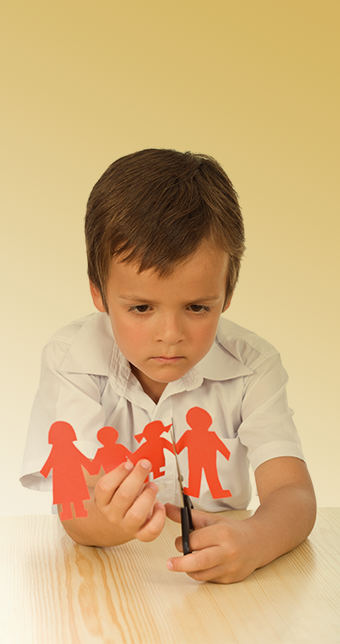Divorce and Children – Answering Kids’ Common Questions
When their parents are getting divorced children will have a whole range of emotions. They might feel bewildered, sad, angry and afraid. Teenagers can be very impacted by their parents splitting up but they have one thing in their favour. They are old enough to have the understanding and the language skill to ask the important questions about how their lives are going to be affected? This is assuming they want to talk and ask questions. In reality they could withdraw and seek out the company of their friends more while their parents work out the details of the new living arrangements.
But what about younger children? They might not fully understand how the new living arrangements will affect them and may have lots of concerns, even if things have been explained to them by both parents.
Questions Children Ask Divorcing Parents
Some of the common questions children might ask when their parents are divorcing are the following:
- Is daddy still going to be my daddy? They might be very afraid at the beginning that the parent who moves out, often the dad if kids are young, may not be their parent any longer. There may be a fantasy that once he moves out he is no longer their dad as they can only associate dad with someone who lives at home. Is he going to forget me/us?
- Will he still play soccer with me, take me to the beach, come to school events? The children could be very attached to the parent who is leaving and may fear that they will no longer be involved in their lives as they are still grappling with what the idea of divorce really means
- Will they still love me, will they forget about me? Younger children could believe the notion of ‘out of sight, out of mind’. There could be real worry about being abandoned
- Can I go and visit daddy at his new place, can I sleep over and take Woofy the dog too?
- Mum when we go and visit daddy are you going to come too?
- Are we still going to see Nan and Pop? These would be the parents of the party that has moved out.
These would most likely be questions from children at primary school age. These might get asked in the beginning stages even if things have been explained to them. They might need to hear the explanations several times, together with lots of reassurance, before they feel more comfortable about what is happening in their young world.
If parents are sensitive to their children’s needs at this time then their initial fears should subside.
However further down the line different kinds of questions may become important. Here I am referring to when the divorce has taken place and the new living arrangements and parenting plans are in place. Often at this time it is probable that either one or both parents may enter into new relationships. While this is healthy and appropriate, if sufficient time has passed since the separation, this scenario beings about it’s own set of issues. Here younger children might find it a bit easier to meet new partners and possibly their children. If this is done gradually and everyone gets on it could even be fun, new play mates. Plus seeing their parent happy in the new relationship which is always good for kids.
Parental Divorce and Teenagers
However teenagers and older children may find this much harder. While they might not object to a parent having a new love interest, they might also want to have nothing to do with them. They might have no desire to meet them for quite some time and certainly do not want to meet the new partners’ children. Adolescents and young adults are busy attending to their own love lives and often prefer to have little information about new partners on the scene. Parents need to respect this without any pressure to ‘do the right thing’ or be ‘polite’.
I know of many people with kids in their twenties who wait at least a year or more before thinking about introducing new partners to their children.
Communication is the Key
Fundamentally children of all ages will worry about some aspects of their parent’s divorce and how it will affect them. As with most sensitive topics in relationships, communication is the key. Let your children tell you what they think, allow them their anger if necessary and be as emotionally available as you can.
I do not necessarily believe that children of divorcing parents need to go for psychotherapy unless the situation has escalated out of control. If the approaches described above have not happened in any shape or form, then you will have traumatised children who will very likely need therapy. By this stage you might have a child who has been quite damaged so professional help is a must.
To avoid causing pain to your kids try to be as kind and forgiving to yourself as you can. This was not part of your grand plan when you got married. The more you are able to deal rationally with this enormous change, the more you you will be able to support your kids through to the other side, peace, security and loving, responsible co-parenting.

